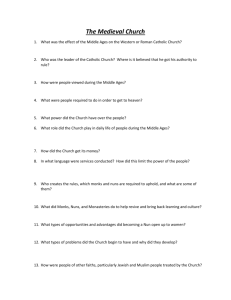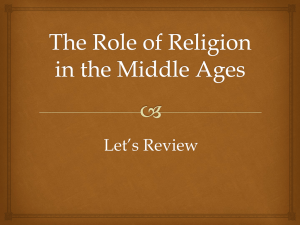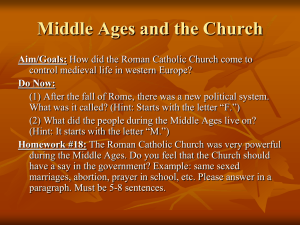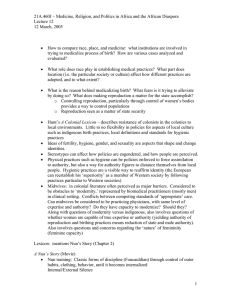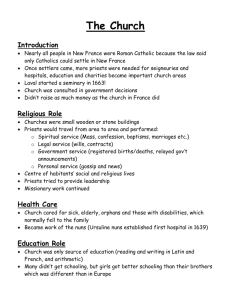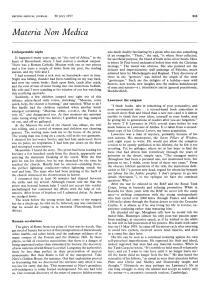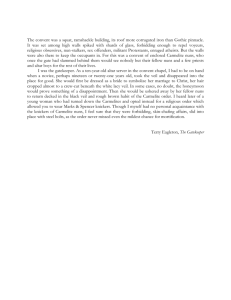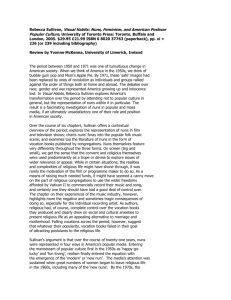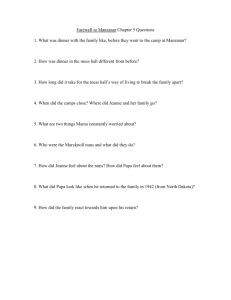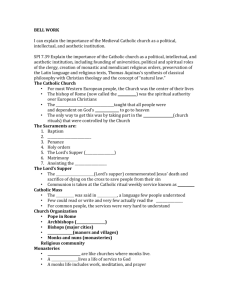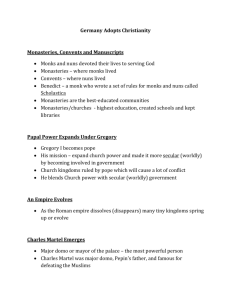Social Contract Exercise
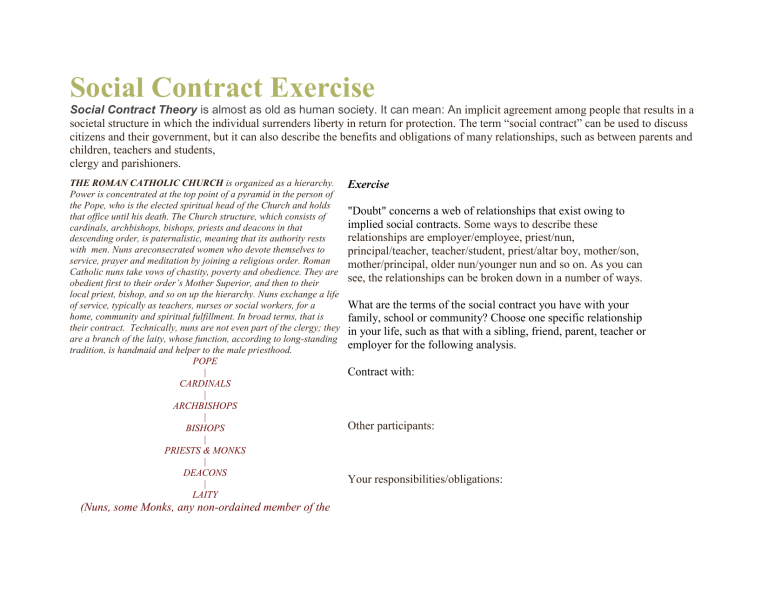
Social Contract Exercise
Social Contract Theory is almost as old as human society. It can mean: A n implicit agreement among people that results in a societal structure in which the individual surrenders liberty in return for protection. The term “social contract” can be used to discuss citizens and their government, but it can also describe the benefits and obligations of many relationships, such as between parents and children, teachers and students, clergy and parishioners.
THE ROMAN CATHOLIC CHURCH is organized as a hierarchy.
Power is concentrated at the top point of a pyramid in the person of the Pope, who is the elected spiritual head of the Church and holds that office until his death. The Church structure, which consists of cardinals, archbishops, bishops, priests and deacons in that descending order, is paternalistic, meaning that its authority rests with men. Nuns areconsecrated women who devote themselves to service, prayer and meditation by joining a religious order. Roman
Catholic nuns take vows of chastity, poverty and obedience. They are obedient first to their order’s Mother Superior, and then to their local priest, bishop, and so on up the hierarchy. Nuns exchange a life of service, typically as teachers, nurses or social workers, for a home, community and spiritual fulfillment. In broad terms, that is their contract. Technically, nuns are not even part of the clergy; they are a branch of the laity, whose function, according to long-standing tradition, is handmaid and helper to the male priesthood.
POPE
|
CARDINALS
|
ARCHBISHOPS
|
BISHOPS
|
PRIESTS & MONKS
|
DEACONS
|
LAITY
(Nuns, some Monks, any non-ordained member of the
Exercise
"Doubt" concerns a web of relationships that exist owing to implied social contracts. Some ways to describe these relationships are employer/employee, priest/nun, principal/teacher, teacher/student, priest/altar boy, mother/son, mother/principal, older nun/younger nun and so on. As you can see, the relationships can be broken down in a number of ways.
What are the terms of the social contract you have with your family, school or community? Choose one specific relationship in your life, such as that with a sibling, friend, parent, teacher or employer for the following analysis.
Contract with:
Other participants:
Your responsibilities/obligations:
Catholic Church)
Your benefits/expectations:
Is the contract being fulfilled? By you? By the other parties?
Why or why not?
